Search Results
Showing results 501 to 520 of 534
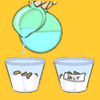
Salt, Soil and Seeds
Source Institutions
Discover how the salt in soil affects plant growth with a few seeds, some cotton, and salt. In this hands-on activity, you will plant seeds in 2 different kinds of soil, containing more or less salt.

Sail Away
Source Institutions
In this activity, learners explore watercraft engineering and sailing.

Paint by the Numbers
Source Institutions
In this pencil and paper activity, learners work in pairs and simulate how astronomical spacecraft and computers create images of objects in space.
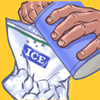
Scream for Ice Cream
Source Institutions
Don't scream for ice cream -- make it with milk, sugar, flavoring and some 'salt-water' ice. Discover the chemistry of ice cream by creating your own.

Interactive Pencil Drawings: Drawings That Tell a Story!
Source Institutions
Margaret Pezalla-Granlund, a Minnesota artist, came up with this really fun and surprising activity using graphite from a pencil, connected with a Pico Cricket to tell a story: "The first time I saw s

Design a Landing Pod!
Source Institutions
In this team design challenge (page 11-18 of PDF), learners design and build a Landing Pod for a model Lunar Rover (previously built in activity on page 1-10 of PDF).
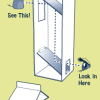
Eye Spy
Source Institutions
This fun activity uses simple materials such as milk cartons and mirrors to introduce the ideas of optics and visual perception.
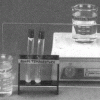
Phase Changes
Source Institutions
Learners observe a sealed test tube containing a small amount of solid stearic acid.
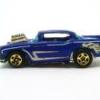
Ramp Racers
Source Institutions
In this activity about friction and gravity (page seven of the pdf), learners use toy racing cars to explore how the two forces affect the motion of objects.
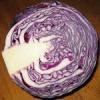
Cabbage Indicator
Source Institutions
In this fun chemistry activity (page 3 of the pdf), learners use cabbage juice to determine the pH of several substances.
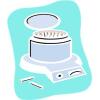
Thymus DNA Extractions
Source Institutions
This laboratory exercise is designed to show learners how DNA can be extracted from a chunk of thymus (sweetbread) or liver.

Chemistry Cake
Source Institutions
In this exciting and tasty chemistry activity which requires adult supervision, learners explore how chemistry affects a simple everyday activity like cooking.
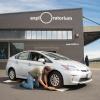
Tired Weight
Source Institutions
Yes, you can weigh your car by figuring out your wheel's tire pressure combined with the "tire's footprint." You'll need someone with a car, driver's license, and safety in mind.
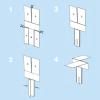
Copter Engineering
Source Institutions
In this activity, learners engineer a paper helicopter that spins to the ground when dropped.

Zipline
Source Institutions
In this design activity, learners create a vehicle that can transport a load, like a favorite toy or as a recycled object, from the top of a zipline to the bottom using only gravity.
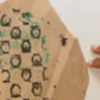
Print Hints
Source Institutions
In this physical sciences activity, learners explore how forensic investigators collect prints from a crime scene. Learners make hand impressions in damp sand and analyze the patterns they observe.

Resonant Rings
Source Institutions
Things that are different sizes and stiffness vibrate differently, and in this Exploratorium Science Snack, you'll see how rings of various diameters react to vibration and external forces.
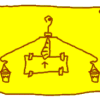
Make a Balance / Scale
Source Institutions
In this activity, learners create a kind of balance device using a wire coat hanger, some string, and paper cups.
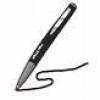
Edible Ink
Source Institutions
In this chemistry activity (page 6 of the PDF), learners observe a chemical change. Learners write and reveal a secret message using edible ink.
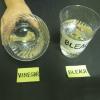
Bone Basics
Source Institutions
This is an activity (on page 2 of the PDF under Bone Regrowth Activity) about the two main components of bone - collagen and minerals (like calcium) - and how they each contribute to its flexibility a
